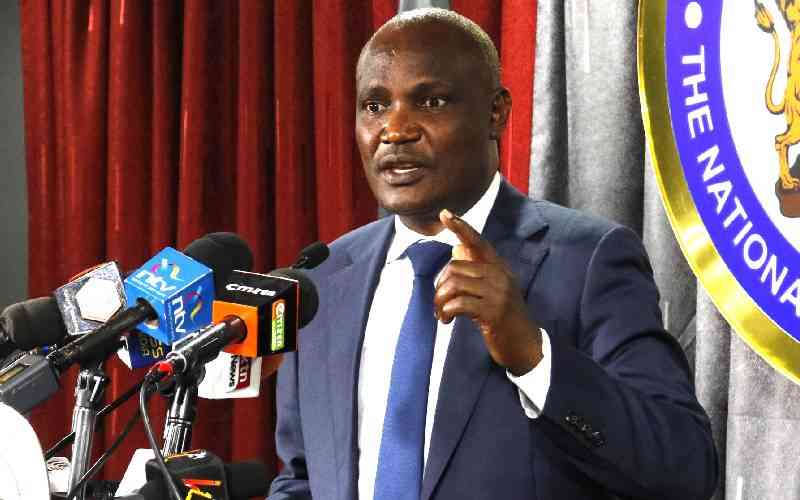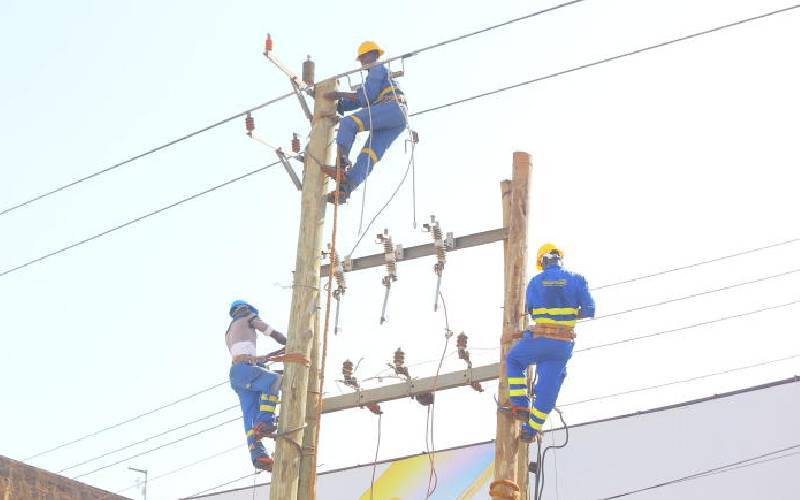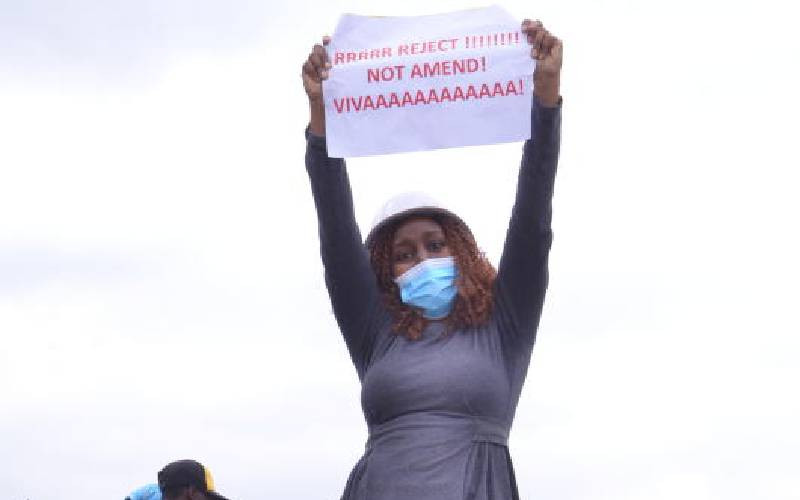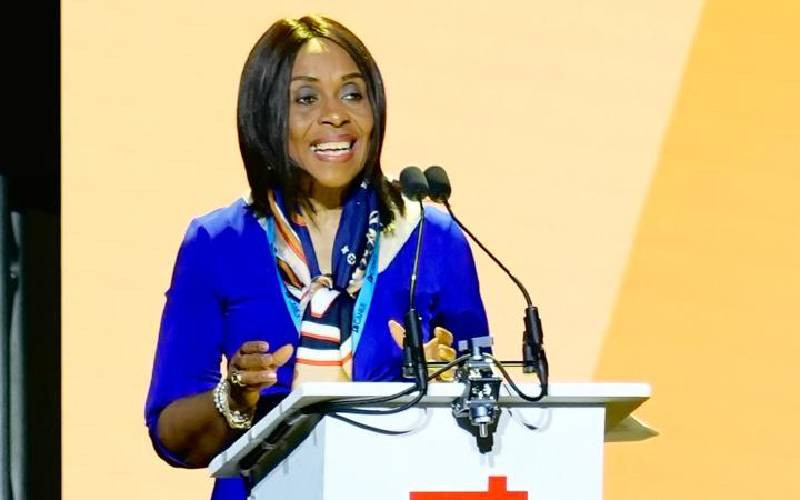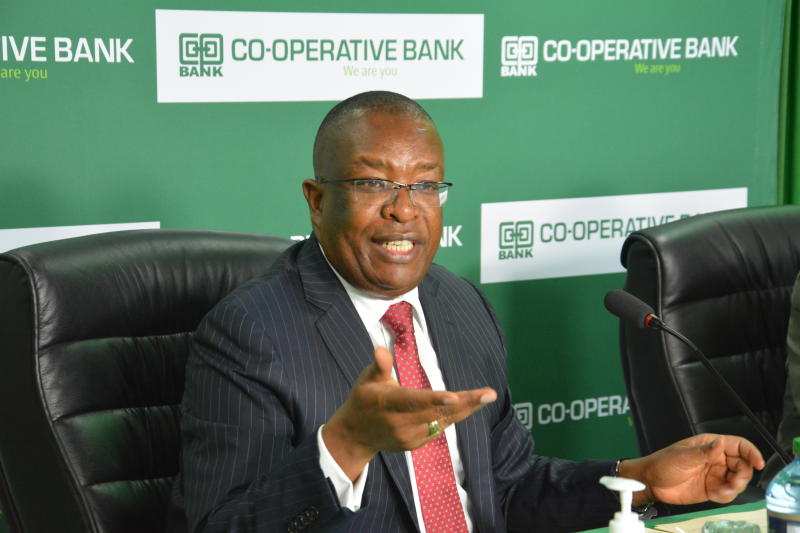
The strong performance by Kenya’s leading banks last year saw executives get pay increases as most leaders exceeded their targets.
Co-operative Bank of Kenya Chief Executive Gideon Muriuki and his KCB Group counterpart Joshua Oigara earned a combined Sh765.6 million or 54.7 per cent of the total Sh1.4 billion that CEOs of the 10 listed banks took home last year.
Mr Muriuki had the largest paycheque, receiving Sh397.1 million in direct compensation, a Sh19.74 million increase from the previous year as the lender's performance surpassed pre-pandemic levels.
Mr Muriuki’s anual pay was Sh130.7 million, or Sh10.89 million every month, but his overall pay surged past the previous year’s Sh377.36 million on the back of a Sh266.4 million bonus.
“Executive directors are entitled to performance-based bonus pay. According to the bonus policy, 75 per cent of the approved bonus is paid within 12 months after the year-end,” says KCB in its annual report.
The balance of 25 per cent is deferred to be paid over the three subsequent financial years, with the total approved bonus accrued as a liability in the financials.
Mr Muriuki’s compensation placed him ahead of that of KCB Group’s Joshua Oigara and Equity's James Mwangi, according to an analysis of the payouts for Nairobi Securities Exchange (NSE) banks.
This even as Mr Oigara saw his pay jump by 217 per cent or Sh252.3 million to Sh368.5 million.
While Mr Oigara’s annual basic pay remained at Sh76.4 million, he received a Sh241.1 million bonus on the back of having guided the lender to grow net profit by 74 per cent to Sh34.2 billion.
Mr Oigara, whose contract runs out this year, also saw his non-cash benefits—medical insurance cover and club membership—rise from Sh300,000 to Sh1.6 million.
His standout compensation is linked to his long tenure in growing the bank from loss-making to becoming one of the largest lenders by earnings and assets base.
“A key pillar of this transformation has been the board of directors successfully implementing a performance-based bonus reward system applicable to all staff,” says the bank in the annual report.
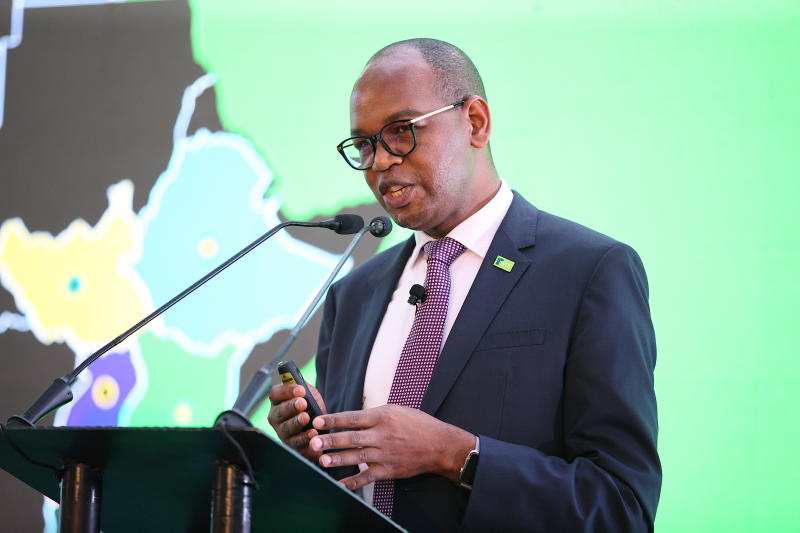
Co-op Bank’s net profit increased 53 per cent to Sh16.5 billion in the year ended December to race past pre-pandemic earnings.
Mr Muriuki, who holds a 1.75 per cent stake in the lender is also in line for a Sh102.53 million dividend cheque, with the lender proposing a Sh1 per share payout.
Equity Group CEO Mr Mwangi saw his total compensation fall from Sh278.53 million to Sh143.02 million in the absence of a higher gratuity for 2020.
Mr Mwangi had earned a gratuity of Sh194.6 million in 2020 in lieu of pension contribution for 10 years.
The gratuity dropped to Sh42.15 million last year to lower his overall pay cheque despite his basic pay increasing from Sh56.73 million to Sh78 million.
The rise in basic pay, which now averages Sh6.5 million a month, signals that Mr Mwangi may have received a monthly salary rise of about Sh1.8 million last year, coming on the back of Equity’s net profit rising 98 per cent to Sh39.17 billion.
He is also set for a Sh383.4 million payout as dividend for his 3.4 per cent direct stake in Equity after the lender crowned the improved performance with a Sh3 per share dividend announcement.
At Sh78 million, Mr Mwangi’s monthly basic pay overtook that of his KCB Group, NCBA Group and Diamond Trust Bank (DTB) counterparts to come second to Co-op’s Mr Muriuki.
Standard Chartered Kenya CEO Kariuki Ngari saw his pay jump by 27.5 per cent to Sh115.63 million from Sh90.64 million in the previous year.
Mr Ngari’s increased pay was helped by a Sh35.94 million bonus, coming in the year he guided Stanchart to a five-year profit record. His base pay was Sh45.37 million or Sh3.78 million per month.
Absa Kenya CEO Jeremy Awori closed the list of bank chief executives with pay above Sh100 million after he received Sh23 million as a cash bonus.
Mr Awori’s total pay hit Sh106.78 million, being a 28 per cent rise from Sh83.31 million in the preceding year when he did not earn a bonus given a decline in performance.
“The remuneration of executive directors consists of fixed and variable components that are designed to ensure a substantial portion of the remuneration package is linked to the achievement of the company’s strategic objectives,” says Absa Kenya in its annual report.
Another top earner was NCBA’s John Gachora with Sh76.8 million, Sh65.01 million of which was basic pay.
Nasim Devji of DTB, with basic pay of Sh61.11 million, took home a total of Sh63.18 million after other benefits were added.
Banks also continued with generous pay to their chief financial officers (CFOs), many of whom earn more than CEOs of companies within and outside the financial sector.
KCB Group CFO Lawrence Kimathi, for instance, saw his total pay jump from Sh60.7 million to Sh107.7 million last year after he received Sh35.3 million as a bonus.
The increased compensation of CEOs came in the year banks’ pretax profits grew by 72.7 per cent to a record Sh194.8 billion, taking the earnings past the pre-pandemic levels.
The pretax earnings grew from the eight-year low of Sh112.8 billion that had been achieved in 2020 when banks were battling Covid-19 disruptions.
Data from the Kenya National Bureau of Statistics ranks workers in the financial and insurance activities as the second-best paid in the country after those from non-governmental organisations and multilateral bodies.
On average, workers in the private sector’s financial and insurance activities are paid Sh2.08 million annually, translating into a monthly income of Sh173,506.
 The Standard Group Plc is a multi-media organization with investments in media platforms spanning newspaper print
operations, television, radio broadcasting, digital and online services. The Standard Group is recognized as a
leading multi-media house in Kenya with a key influence in matters of national and international interest.
The Standard Group Plc is a multi-media organization with investments in media platforms spanning newspaper print
operations, television, radio broadcasting, digital and online services. The Standard Group is recognized as a
leading multi-media house in Kenya with a key influence in matters of national and international interest.




